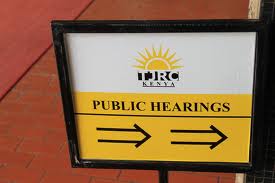In 2003, the Government appointed the Task Force on the Establishment of a Truth, Justice, and Reconciliation Commission. Its mandate was to find out if a truth commission was necessary for Kenya, and, if so, to make recommendations on the type of truth commission that ought to be established.
The Taskforce recommended for immediate establishment of a Truth Justice and Reconciliation Commission before June 2004 with specific powers and functions and mandate. However, the recommendations were never implemented by the Government.
The political crisis that followed the 2007 elections again brought to the fore the urgent need to address the deep seated political, social and economic issues facing Kenya. As a result, the Kenya National Dialogue and Reconciliation mediated by His Excellency Kofi Annan and a Panel of Eminent Personalities agreed on a number of reforms – key among them being the creation of a truth, justice and reconciliation commission through an Act of Parliament. The Commission is expected to inquire into human rights violations, including those committed by the state, groups, or individuals and major economic crimes, in particular grand corruption, historical land injustices, and the illegal or irregular acquisition of land, and other historical injustices.
Pursuant to this agreement, the Government of Kenya has published a bill the Truth Justice and Reconciliation Commission Bill, 2008 – to establish and define the mandate, objectives and processes of the Commission and provide for the process of truth, justice and reconciliation.
Civil Society Organisations and the Kenya National Commission on Human Rights working under a Multi-Sectoral Taskforce on Truth Justice and Reconciliation process has been collaborating to ensure that the truth, justice and reconciliation process is carried out in a manner beneficial to Kenyans and posterity and that the process is not lost through political interference and interests, and that Kenyans are well informed about and are enabled to meaningfully engage in the process.
Following the publication of the Truth, Justice and Reconciliation Bill, 2008 the Multi-Sectoral Task Force on Truth Justice and Reconciliation Process has undertaken an audit of the Bill and evaluated it against identified and tested standards.
The Multi-sectoral Taskforce is however concerned that a Bill of such significance to Kenya’s development and continued existence as a cohesive nation suffers certain critical and manifest weaknesses which could have been taken care of before publication. We believe that the weaknesses and flaws in the Bill would have been prevented if there was adequate consultation with the stakeholders and full utilization of the relevant and available expertise. Debate on the weaknesses of the Bill now, though absolutely necessary, sadly detracts from the momentum that was provided by the signing of the Peace Accord. It is in the spirit of ensuring that the process of healing, truth and reconciliation succeeds that we make proposals for amendments to the Bill

 Kenyans for Peace with Truth and Justice (KPTJ)
Kenyans for Peace with Truth and Justice (KPTJ)